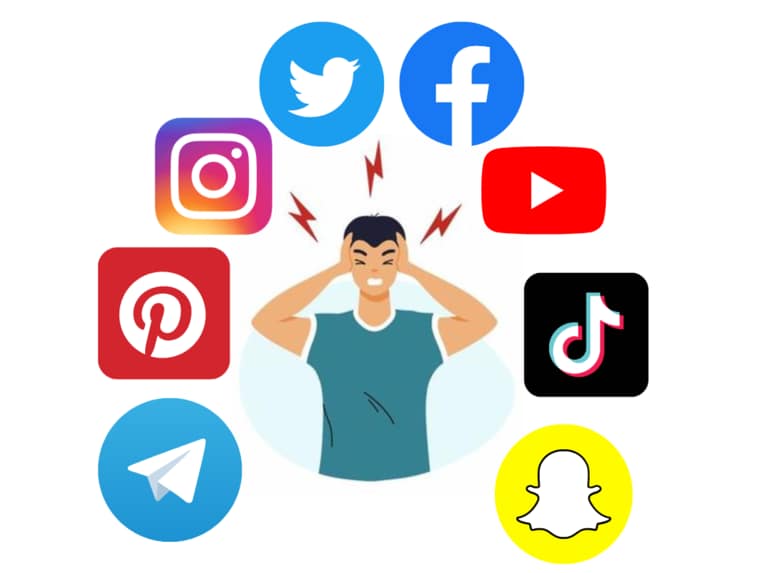
Harmonizing stress: The power of Music
Imagine yourself before an upcoming exam, presentation, or job interview. What do you usually do to calm your nerves? In the society we live in, constant exposure to stress-eliciting events like these environmental demands of work, school, or other occupations, but also enrivonmental noise, results in high perceived stress (Koolhaas et al., 2011). Stress is the physiological or psychological response to internal or external stressors and involves changes affecting nearly every system of the body, influencing how people feel and behave (APA, 2018). Every one of us deals with stress, but how do we cope with it? Based on the latest scientific findings, this blog post argues that music can be a valuable tool to fight stress.
Music is already part of everyone’s life, whether willingly or unconsciously.
Apart from the music we play for ourselves or together with friends, music is also deliberately used in people’s social or physical environments to influence moods and behaviors (Kemp et al., 2019). Listening to music has a multitude of effects on the brain. The effects include a more active limbic system, enhancing reward pathways, and emotional responses, which are associated with increased dopamine release (Bennet & Bennet, 2008). Different studies have shown that certain musical elements, such as rhythms and pitch, can influence mood and cognitive functions (Bennet & Bennet, 2008). For example, the soothing patterns of Vivaldi’s Four Seasons may enhance concentration and calm us, while the vibrant rhythms of Bach’s Brandenburg Concertos are noted to elevate alertness and improve cognitive performance in complex tasks (Bennet & Bennet, 2008).
Often people actively seek environments where music is played to calm their nerves, reduce perceived stress, or just experience joy and happiness. Cannon & Greasly (2021) explored the effects of electronic dance music events on perceived stress. They found that people who go to those kinds of events reported less perceived stress and an overall increase in happiness.
These findings are an example of how music is actively used as an indirect tool to create environments that effectively impact moods and perceived stress (Cannon & Greasly, 2021).
Music can therefore harmonize our environments, but what are its direct effects on stress? Whether music can calm nerves during a stress response was examined in a study by Toma et al. (2011). The study explored this by examining how listening to relaxing music, specifically, Allegri’s ‘Miserere’ before completing a standardized psychosocial stress test could affect our psychobiological stress responses. The findings suggest that music, compared to silence or natural sounds, can modulate our bodily stress responses. More specifically, participants who listened to relaxing music before the stressful task showed a quicker return of salivary cortisol levels to the baseline than participants in other conditions (Toma et al., 2011). Cortisol is correlated with stress experiences and is often used to measure bodily stress responses (Hellhammer et al., 2009). Furthermore, cortisol is not only correlated to stress but also to long-term negative health outcomes and plays a major role in the relationship between stress and health (Hellhammer et al., 2009). Surprisingly, besides the biopsychological effects, the music did not affect the perceived stress of the participants, which shows the complexity of human stress responses while showing the potential for music to serve as a subconscious tool in managing stress (Toma et al., 2011).
Generally, this evidence suggests that brief periods of listening to relaxing music like Allegri’s ‘Miserere’ can mitigate our bodily stress responses.
If brief episodes of music can lead to an immediate reduction in physical stress, how about repeated exposure? After all, stress is often a daily issue. Baste & Gadkari (2014) found that repeatedly listening to music also affected the perceived stress levels in medical students. In their study, students listened to music for 20 minutes in a quiet, calm environment for two days in a row, and were compared to students who just took a 20-minute break in the same environment without music and to students who did not take such a break. Interestingly, the reports from the students showed that after listening to music, there was a decrease in perceived stress of 62,5% compared to 30,6% in the resting without music condition and no effect for participants without a break. This study suggests that listening to relaxing music significantly affects perceived stress if applied repeatedly in a quiet environment with no other distractions.
Repetition therefore is key for consciously measurable effects additionally to the biopsychological effects that music can have on stress.
Different music evokes different emotional responses in every individual (Toma et al., 2011). People experience music differently and have personal preferences about what kind of music they like. One person might find rock music relaxing, while another experiences it as stressful and annoying. The effectiveness of music on cognitive and emotional states greatly depends on the individual’s current mental state and the environment, indicating a dynamic interaction between the psychological context and the type of music (Bennet & Bennet, 2008).
Therefore, it is important to highlight these individual differences in musical taste to emphasize the decreased generalizability of the effects music can have.
To conclude, the effects of music on our physiological and psychological stress responses are multifaceted. Let’s revisit that scenario of having an important meeting, a performance, or simply a day packed with daunting tasks. How did you imagine coping? Next time you find yourself in such a moment, I suggest to listen to your favorite music, which may harmonize your stress responses. Music offers a unique form of support, whether it is taking a moment to listen to a calming piece like Allegri’s Misere or just your favorite soundtrack. Imagine integrating a brief, 20-minute listening break into your daily routine or right before a stressful event. Your biological and psychological health will benefit, in the short and long term.
Reference list
American Psychological Association. (2018, April 19). APA dictionary of psychology. Apa.org; American Psychological Association. https://dictionary.apa.org/stress
Bennet, A., & Bennet, D. (2008). The human knowledge system: music and brain coherence. Vine, 38(3), 277–295. https://doi.org/10.1108/03055720810904817
Baste, V. S., & Gadkari, J. V. (2014). Study of stress, self-esteem and depression in medical students and effect of music on perceived stress. Indian journal of physiology and pharmacology, 58(3), 298–301. https://pubmed.ncbi.nlm.nih.gov/25906616/
Cannon, J. W., & Greasley, A. E. (2021). Exploring Relationships Between Electronic Dance Music Event Participation and Well-being. Music & Science, 4, 205920432199710. https://doi.org/10.1177/2059204321997102
Hellhammer, D. H., Wüst, S., & Kudielka, B. M. (2009). Salivary cortisol as a biomarker in stress research. Psychoneuroendocrinology, 34(2), 163–171.
https://doi.org/10.1016/j.psyneuen.2008.10.026
Kemp, E. A., Williams, K., Min, D.-J., & Chen, H. (2019). Happy feelings: examining music in the service environment. International Hospitality Review, 33(1), 5–15. https://doi.org/10.1108/IHR-10-2018-0019
Koolhaas, J. M., Bartolomucci, A., Buwalda, B., de Boer, S. F., Flügge, G., Korte, S. M., … & Fuchs, E. (2011). Stress revisited: a critical evaluation of the stress concept. Neuroscience & Biobehavioral Reviews, 35(5), 1291-1301. https://doi.org/10.1016/j.neubiorev.2011.02.003
Rahman, J. S., Gedeon, T., Caldwell, S., & Jones, R. (2020). Brain Melody Informatics: Analysing Effects of Music on Brainwave Patterns. 2020 International Joint Conference on Neural Networks (IJCNN), 1–8. https://doi.org/10.1109/IJCNN48605.2020.9207392
Thoma, M. V., La Marca, R., Brönnimann, R., Finkel, L., Ehlert, U., & Nater, U. M. (2013). The Effect of Music on the Human Stress Response. PLoS ONE, 8(8), e70156. https://doi.org/10.1371/journal.pone.0070156
Picture credits
Featuring image from GoodFon.com by Angas, all creative commons license.



